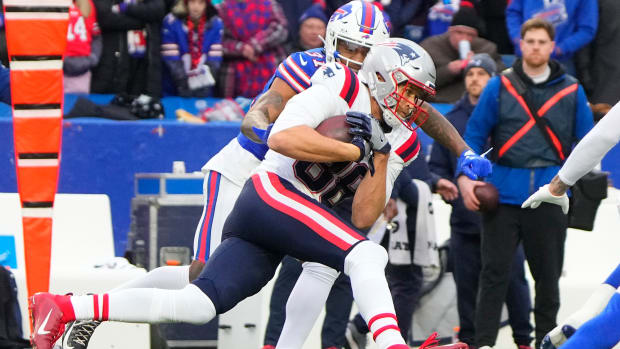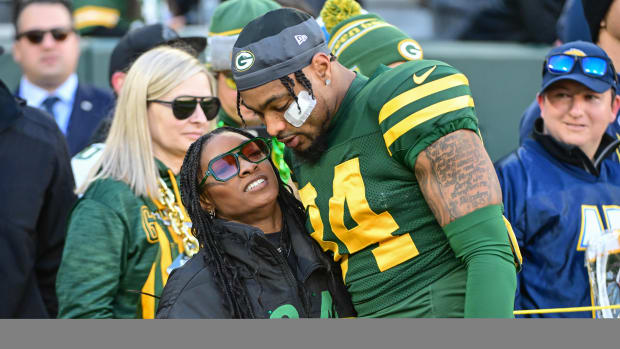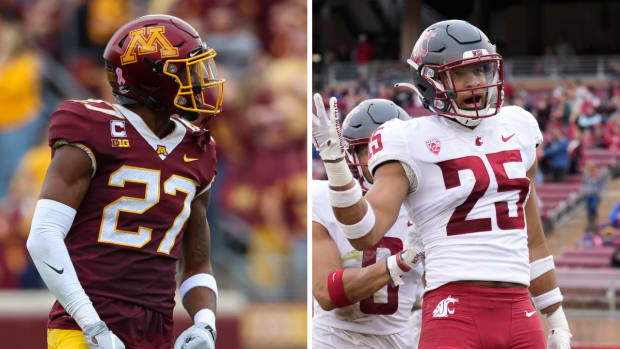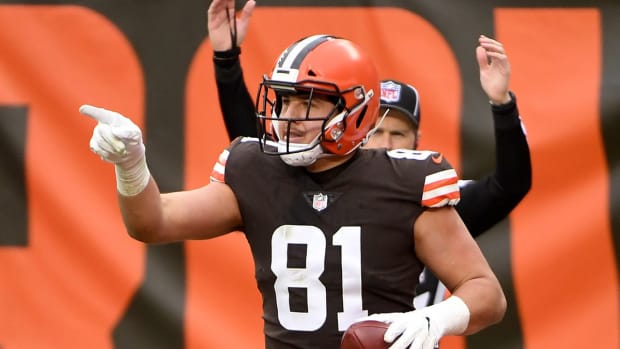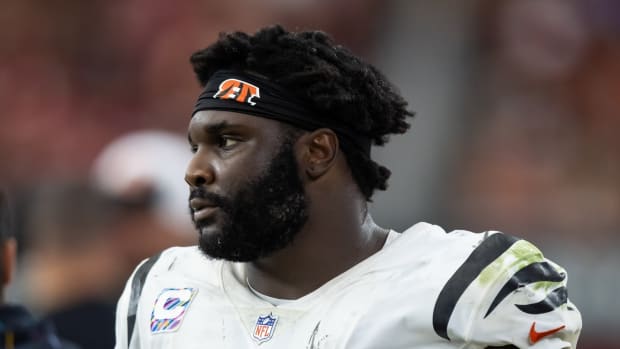Davante Adams Trade Isn’t Aaron Rodgers’s Fault, But It Is His Problem
As if to avoid some kind of proximity mine of scrutiny, the leaking of Green Bay’s stunning Davante Adams trade to Las Vegas came with the footnote that Aaron Rodgers was aware of the deal, which is the kind of seat at the table he jockeyed for during last offseason’s extended holdout.
Adams was reportedly offered the same money on a long-term contract extension in Green Bay that he was in Las Vegas, though without a microscope being held over the tiny print, there is no way we can verify the Packers aren’t having themselves a public relations spin art party. The Raiders paid a first-and second-round pick for the privilege of Adams’ services. It is clear they wanted him badly, while the Packers seemed to want him badly at the correct price and structure.
While this doesn’t directly reflect on Rodgers—please don’t read this as us suggesting Adams would prefer to play with Derek Carr—it does rise to the level of Rodgers’s problem now. And that’s an interesting place for Rodgers and the Packers to be. Green Bay’s receiver depth chart has been decimated and most of its best options in free agency have signed elsewhere. While there are likely a dozen veteran options who could be jarred loose via trade before the draft or—gasp—a wide receiver in the first round that the Packers could select, there is almost no way they enter into the 2022 season better at the position than how they left 2021.
The difference between now and any other time in Packers history is that Rodgers isn’t able to bundle the loss of Adams into some rolling grievance against the organization when the season goes south, which he has skillfully done in the past. While we have no problem personally with Rodgers’s honesty (about 90% of his gripes about issues unrelated to the current public health crisis or the media or Ayn Rand make a lot of sense), the fact that he never had any difficulty pointing out the shortcomings of the team’s personnel department makes being somewhat involved in the process a new dimension to his time in Green Bay.
The Packers are a bit of clay in his hands now and it’s difficult for Rodgers to argue otherwise. Matt LaFleur is one of the hottest young coaches in the NFL who is connected to a network of rising-star quarterback gurus, but hired Rodgers ally Tom Clements to replace Luke Getsy, who is now the offensive coordinator of the Bears. While Clements is incredibly accomplished, we’ll never know if he was Option 1A to replace Getsy in a neutral scenario in which Rodgers would have accepted the decision regardless. He was, at the very least, CC’d on the staff-wide email about Adams’s goodbye party and the cake in the conference room.
If he’s questioned about Adams’s departure, is he asked about his recruiting efforts to keep him? If he’s roped into evaluations of draft pick wide receivers or free agents, does he discuss why it did or didn’t work out?
We’ll back up for one moment and say that Rodgers was asking for something entirely reasonable. For someone to have been that incredible and gifted for so long in one place, he should get a slice of the pie. We’ve seen franchises like the Jets kowtow more in terms of personnel decisions to the likes of Mark Sanchez than the Packers had done for Rodgers. When someone can run the offense for himself, he should have the right to choose who he wants to hang out with during the week, or the kinds of people who can make him better. In hindsight, when Peyton Manning hit free agency, some general managers wish they lobbied their bosses to give him ownership shares to play there.
But it’s worth wondering: Does the other side of this become complicated? When the Packers make sure everyone knows you were aware of a decision, or that decisions were made because of you, does it then make you somewhat complicit, or, at the very least, less able to criticize?
It’s hard not to think of Tom Brady, who desired and attained that kind of partnership role in the GM’s office in Tampa Bay, stood on his head for Antonio Brown and then sidestepped the post-meltdown wreckage like a seasoned matador. Maybe we’re underestimating Rodgers’s ability to play both sides here. He could certainly get away with it. He could roll his eyes and mutter something about the stubbornness of the front office suits when asked about Adams. He could be the world’s most skilled double agent in that regard.
When the path to being a was this complicated though, this public and acrimonious, how believable will it really be? And more importantly, how will Rodgers in the personnel department help Rodgers the quarterback now that the best receiver he’s ever played with is gone?
































